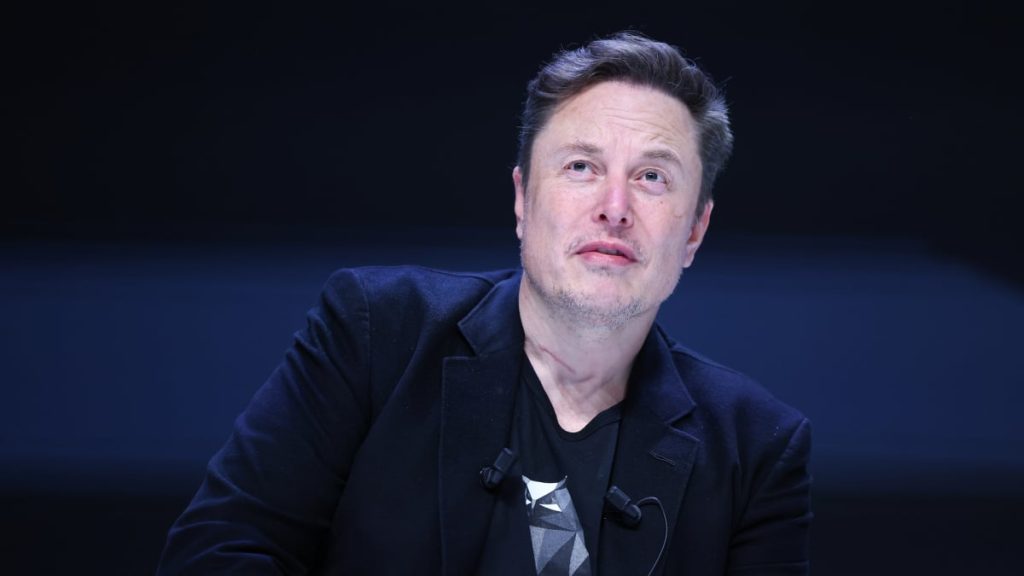Elon Musk is getting sued again, this time by the production company behind Blade Runner 2049.
Alcon Entertainment filed a lawsuit in Los Angeles on Monday with the U.S. District Court, naming Musk, Tesla, and Warner Bros. Discovery, and accusing them of using copyrighted images to create AI-generated stills to promote Tesla’s new “robotaxi” aka “Cybercab”.
The complaint alleges the defendants requested permission to use a still from Denis Villeneuve’s Blade Runner 2049 to promote the fully autonomous electric vehicle at the livestreamed “We, Robot” event at the Warner Bros Studios in Burbank, California on Oct. 10. However, Alcon said it refused permission and “adamantly objected” to the use of the image or “suggesting any affiliation between Blade Runner 2049 and Tesla, Musk or any Musk-owned company.”
Then, the company alleges, Musk and Tesla “used an apparently AI-generated faked image to do it all anyway.”
Alcon’s filing accuses Musk and Tesla of feeding the requested image from Blade Runner 2049 along with images from the same scene into an AI image generator and “directed the AI to make a lightly stylized fake screen still”, which it then displayed at the globally livestreamed event for 11 seconds (for which the production company says Musk had “no credible reason”).
Mashable Light Speed
The images, Alcon describes, are taken from the “most memorable sequences” of Blade Runner 2049, when Ryan Gosling’s character K arrives in the desert ruins of Las Vegas — it’s the area that’s bright orange thanks to nuclear destruction. “The sequence follows K as he leaves the spinner and walks in his trench coat or “duster” toward and through the misty orange urban desert ruins, often viewed by the camera from behind or in silhouette,” Alcon describes.
You can see in the Tesla presentation below around the five-minute mark that Musk indeed names Blade Runner onstage during his keynote while an undeniably Blade Runner-esque image is on screen, with the words “Not This” appearing in the upper left corner. “You see a lot of sci-fi movies where the future is dark and dismal. It’s not a future you want to be in,” Musk said. “Like, I love Blade Runner but I don’t know if we want that future. I think we want that duster he’s wearing but not the bleak apocalypse.”
Alcon has described Musk and Tesla’s copyright infringement as “a bad-faith and intentionally malicious gambit” to “make the otherwise stilted and stiff content of the joint WBDI-Tesla event more attractive to the global audience and to misappropriate Blade Runner 2049‘s brand to help sell Teslas.” The company also said Musk’s use of Blade Runner 2049 imagery was “hardly coincidental” as “the only specific Hollywood film which Musk actually discussed to pitch his new, fully autonomous, AI-driven cybercab” — given the film prominently features a futuristic, AI-powered, driverless car.
But the suit gets more personal than mere copyright in the filing, with the company calling Musk “problematic” himself, and declaring it “did not want Blade Runner 2049 to be affiliated with Musk” or any of his companies. “Any prudent brand considering any Tesla partnership has to take Musk’s massively amplified, highly politicized, capricious and arbitrary behavior, which sometimes veers into hate speech, into account,” the filing reads.
Alcon also pointed out it was in negotiations with car brands around its in-production Prime Video Blade Runner 2099 TV series, and that Musk’s actions could “cause confusion among Alcon’s potential brand partner customers.”
The production company is seeking damages for “economic theft” and aims to “to pry Musk and his co-Defendants away from Alcon’s Blade Runner 2049 brand and goodwill” under the United States Copyright Act and the Lanham Act.
Mashable has reached out to Alcon Entertainment, Tesla, and Warner Bros. Discovery for comment.
